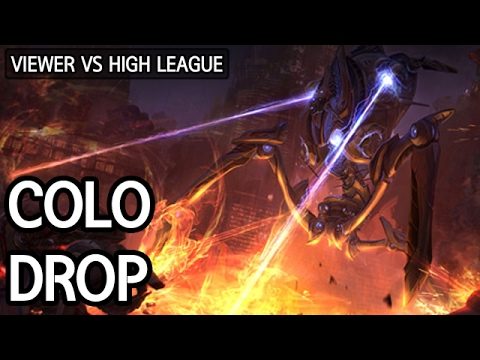Starcraft Heroes – Tassadar
Tassadar is an excellent example of the problems faced by the ever-widening rift that cuts across Protoss society. Born into a new generation that faces a dynamic future, Tassadar feels paralyzed by the rigid attitude with which the ancients cling to the past. Tassadar feels that the inflexible nature of the Protoss and their inability to rethink ancient traditions will be the downfall of his race. Fascinated by the power and mysticism of the renegade Dark Templar Caste,
Planets Starcraft – Shiloh
Shiloh is a temperate rim planet that was initially ignored by the settlers due to its low metal supplies. They instead focused on planets that enabled industry and space trade. It was only after the richer, central worlds were mapped, settled, and established that Shiloh caught the interest of the colonists.
Starcraft Units – Hellion
A fast expansion-raiding unit and anti-Melee unit when transformed into Hellbats. With a line of effect attack, the same range as a Marine’s attack, Hellions excel at fighting in Choke Points on maps. With a very slow cooldown on attack and fast movement speed, this unit requires a lot of attention and micro-management to be effective due to its nonexistent armor and low health.
Starcraft Missions – Fire in the Sky
Leave your units behind and destroy the first opponents only with Kerrigan. Feel free to use all abilities as best you can, as you will be at full health and energy again as soon as you take the skeleton and therefore level up.
Starcraft Buildings – Nydus Worm
The Nydus Network is a tier-two Zerg building that is used to move units quickly around the map. It requires a Lair to build and can create Nydus Worms. A Nydus Worm can be built anywhere one has vision, without need for Creep or a Drone.
Follow us and check out our social media accounts on Twitter, Facebook & YouTube ►
● on Twitter ► esport.directory
● Facebook ► esport.directory
● Youtube ► esport.directory
Starcraft
Starcraft is a turn-based game. The active player receives the obligatory first player token, so it should always be clear whose turn is being played, and especially interesting: StarCraft does not require any dice at all.
To get started, you first have to agree on your faction, then gather all the necessary figures, cards and tokens of your faction (woe betide the game master who only starts sorting now!) and leave the table in the middle free, as this is where the galaxy, i.e. the playing field, is built.
This proceeds similarly to Twilight Imperium.
Each player draws two planet tokens, which they can use to pick their planets from the planet stack. This step is necessary because the planet cards are shaped differently and the tokens are the only way to ensure that the drawing is random.
The starting player then places his first planet in the center of the table and can already build a base – but he doesn’t have to, then he has to do it on his second planet as soon as he lays it out.
Once the first planet is in place, it is the next player’s turn to lay out his first planet and connect it to the previous player’s planet with a navigation route cardboard piece. The last player may lay out both planets at the same time and then it goes in reverse order to the starting player. This way a more or less interconnected galaxy is created.
Finally, Z-axes are laid, which are navigation routes across loose ends, sort of a 3D conversion.
Each player receives the corresponding resource cards for his two planets and then only the event cards are reduced according to the number of players, shuffled and placed on the board. There are three event card phases, which is symbolized by different card backs and should help the game to become faster and more powerful towards the end. Now the game can start.
Each round is divided into three phases.
Starcraft is a turn-based game. The active player gets the obligatory first player token, so it should always be clear whose turn is being played, and most interestingly, StarCraft doesn’t require any dice at all.
To get started, you first have to agree on your faction, then gather all the necessary figures, cards and tokens of your faction (woe betide the game master who only starts sorting now!) and leave the table in the middle free, as this is where the galaxy, i.e. the playing field, is built.
This proceeds similarly to Twilight Imperium.
Each player draws two planet tokens, which they can use to pick their planets from the planet stack. This step is necessary because the planet cards are shaped differently and the tokens are the only way to ensure that the drawing is random.
The starting player then places his first planet in the center of the table and can already build a base – but he doesn’t have to, then he has to do it on his second planet as soon as he lays it out.
Once the first planet is in place, it is the next player’s turn to lay out his first planet and connect it to the previous player’s planet with a navigation route cardboard piece. The last player may lay out both planets at the same time and then it goes in reverse order to the starting player. This way a more or less interconnected galaxy is created.
Finally, Z-axes are laid, which are navigation routes across loose ends, sort of a 3D conversion.
Follow us and check out our social media accounts on Twitter, Facebook & YouTube ►
● on Twitter ► esport.directory
● Facebook ► esport.directory
● Youtube ► esport.directory
Starcraft Gameplay, Starcraft Rankings, Starcraft Release Date, Starcraft Carrier, ‚ Starcraft Cover, Starcraft Skins, Starcraft Videos, Starcraft Video YouTube, Starcraft PS4, Starcraft Platforms, Starcraft Players, Starcraft Team,




